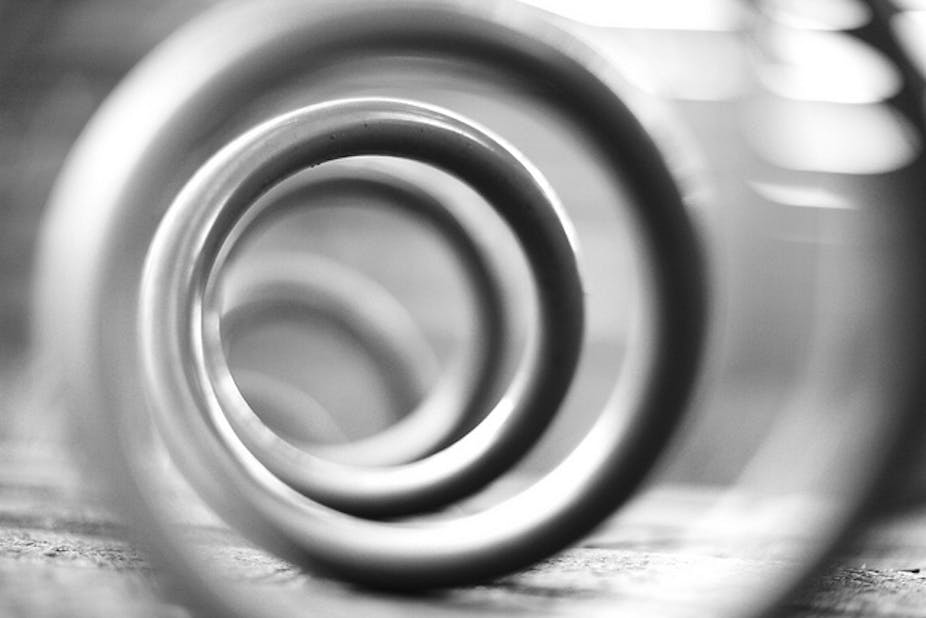PANACEA OR PLACEBO – A weekly series assessing the evidence behind complementary and alternative medicines.
Colonic therapy – also known as colonic irrigation, colonic hydrotherapy or a high enema – is an alternative therapy which allegedly helps remove toxins and waste from the bowel (or colon).
The process involves pumping large volumes of fluids into the colon via tubes inserted into the rectum. The fluids can be water or water infused with herbs or enzymes. Some even swear by coffee enemas as a health cure-all.
Early colonic therapy
Historically, colonic therapy was based on the ancient theory of autointoxication – that intestinal waste products from incomplete digestion could poison the body and therefore cause disease.
The theory can be traced back to the medicine of most ancient cultures. In the west, humoral medicine came from the idea that all diseases were caused by the imbalance of the four body humors; conversely, health constituted a balanced mix of these humors. Waste products formed in the intestinal tract were thought to be a major potential contributor to humoral imbalance. In fact, both Hippocrates and later Galen viewed autointoxication as a major etiologic factor of disease.
In the 19th century, autointoxication was an imperative doctrine of medicine. And by the turn of the century, there appeared to be some possible scientific backing. Elie Metchikoff, who received the 1908 Nobel Prize for his theory on phagocytosis, proposed that “chronic poisoning by intestinal microbes weakens our cellular elements… and might provoke senile phenomena”.
When it became clear that the scientific rationale was wrong and colonic irrigation was not merely useless but also potentially dangerous, it was exposed as quackery and subsequently went into decline.
There has been some recent resurgence of colonic irrigation. But even today’s experts on colonic irrigation can only provide theories and anecdotes in its support.
Claims versus evidence
Practitioners and supporters of colonic therapy variously claim the procedure can detoxify the body, boost the immune system and prevent or alleviate a range of health problems.
But the human body rarely needs such assistance. The digestive system is cleverly designed to absorb nutrients from foods and pass remaining waste material out of the body. It also has the capacity to expel toxins, illness-causing microorganisms and foreign substances.
A systematic review of the scientific literature found there is no evidence to support the use of colonic therapy for general health promotion or maintenance. The 2010 review examined published literature of both the traditional and complementary and alternative medicine arenas.
There are, however, multiple case reports of harmful effects from colonic therapy. Mild side effects reported following colonic irrigation include cramping, bloating, nausea and local discomfort or pain.
Serious adverse effects have included infection, bowel perforation, air embolism and electrolyte imbalances. Such complications require medical or surgical intervention, and indeed fatalities have also been documented. People with a history of gastrointestinal diseases such as inflammatory bowel disease may be at higher risk of these adverse effects.
Colonic therapy and cancer
Controversially, colonic therapy has also been used as part of alternative cancer treatment programs such as Gerson therapy.
Apart from the lack of efficacy and potential risks of colonic irrigation, medical professionals are concerned that people with symptoms or a diagnosis of cancer who are attracted to these alternative therapies may delay seeking appropriate medical advice or treatment. Bowel cancer, for instance, is successfully treated in about 90% of cases if it is diagnosed and managed early. Delay in seeking effective treatment can be a fatal mistake.
More recently, colonic irrigation has also been promoted as an alternative cleansing preparation for colonoscopy – a medical procedure which examines the lining of the bowel for abnormalities such as polyps and cancer.
As colonic irrigation is performed through the anus, it will not necessarily clean the upper colon adequately. And without adequate cleansing, a perfect view of the bowel cannot be obtained at colonoscopy, running the risk of missing potentially important pathology.
Bowel cleansing before colonoscopies currently involves dietary modification and the use of a laxative or bowel preparation medication. A number of these medications are available, so there is no place for colonic irrigation as an alternative to current medical practice in Australia.
What about the idea that food waste accumulates in the colon?
The respected American Cancer Society has determined that the “available scientific evidence does not support the premise that toxins accumulate on intestinal walls or that toxicity results from poor elimination of waste from the colon”. And Bowel Cancer Australia, a national organisation dedicated to reducing the impact of bowel cancer in the community, agrees.
So it’s clear that despite colonic irrigation’s long history, there is no scientific evidence to support the claims that it improves health. There are, however, many reasons to avoid the procedure.
Read the other instalment of panacea or placebo:

